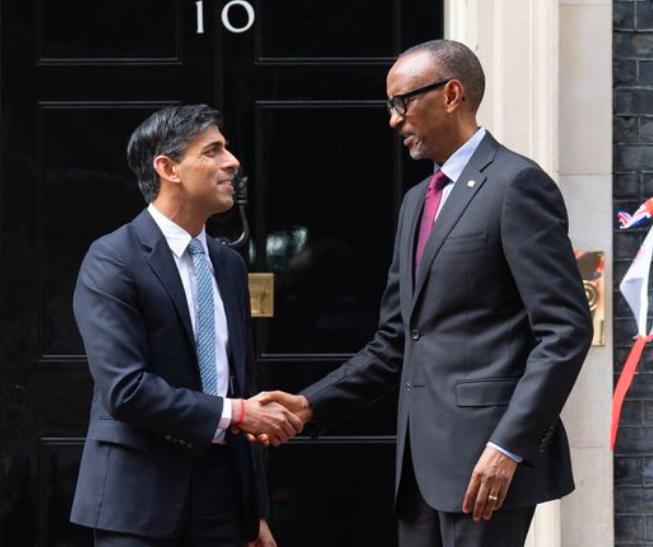In a significant blow to the UK government’s migration policy, the Supreme Court has ruled the plan to send asylum-seekers to Rwanda unlawful. The controversial policy, announced in April 2022 by Prime Minister Rishi Sunak, aimed to address the rising number of perilous small boat crossings across the English Channel. However, the court’s unanimous decision not only discredited the policy but also triggered a political storm within the Conservative Party.
The plan faced legal challenges from its inception, with human rights groups strongly condemning it. Despite the government’s persistence, the Supreme Court sided with a previous appeals court ruling, emphasizing the policy’s lack of lawfulness. The attempt to deport asylum-seekers to Rwanda, a move intended to outsource asylum processing, had faced criticism for its potential violation of international refugee protections.
The Supreme Court’s ruling dismantled the government’s appeal, citing concerns about Rwanda’s asylum processing system, human rights record, and the risk of genuine refugees facing ill-treatment if returned to their countries of origin. The decision not only highlighted the inadequacies of the Rwanda plan but also raised questions about the government’s approach to asylum seekers and its commitment to international obligations.
The ruling sparked a furious revolt from the right wing of British politics. Prime Minister Sunak, faced with a potential defeat of his flagship migration policy, hinted at pursuing a formal treaty with Rwanda, a move likely to face thorough legal examination. The right-wing faction, including former Home Secretary Suella Braverman, called for emergency legislation and even suggested leaving the European Convention on Human Rights (ECHR). This internal strife within the Conservative Party adds a layer of complexity to the already challenging political landscape.
In response to the ruling, Prime Minister Sunak expressed his commitment to stopping illegal boat crossings. He announced plans to pursue a new treaty with Rwanda, a move likely to face thorough legal examination. Sunak’s refusal to rule out leaving the ECHR indicates the potential for a significant shift in the government’s approach to international human rights conventions.
The Rwanda plan, endorsed by former Home Secretary Priti Patel and later supported by Braverman, has been a costly and public failure. The UK reportedly paid £140 million ($177 million) to Rwanda for the proposal, yet no flights took place. The judgment not only questioned the viability of offshoring asylum processing but also reignited the debate on illegal migration as a general election looms.
Humanitarian groups celebrated the Supreme Court’s decision, considering it a victory against a policy they deemed shameful. Care4Calais and Medecins Sans Frontiers expressed relief, urging a shift towards providing safe routes for those seeking sanctuary in the UK. The global community closely watched the case as it tested the feasibility of offshoring asylum processing, with the ruling seen as a precedent for other nations considering similar approaches.
Rwanda’s spokesperson, Yolande Makolo, emphasized that the Supreme Court’s decision was ultimately a matter for the UK’s judicial system. Refuting claims that Rwanda is not a safe third country for asylum seekers, Makolo highlighted Rwanda’s commitment to international obligations. The government of Rwanda, recognized by the UNHCR and other institutions, expressed its dedication to the humane treatment of refugees.
The Supreme Court’s ruling against the UK’s plan to send asylum-seekers to Rwanda has far-reaching implications. Beyond the legal defeat, it has ignited a political firestorm within the Conservative Party, raising questions about the government’s commitment to international refugee protections. As the UK navigates the aftermath of this judgment, the debate over asylum policies, migration, and adherence to human rights conventions will likely remain at the forefront of political discourse in the lead-up to the general election.
































































